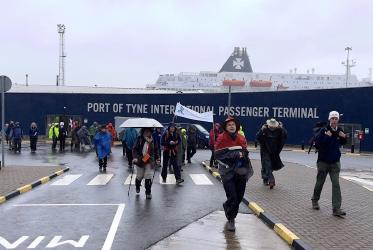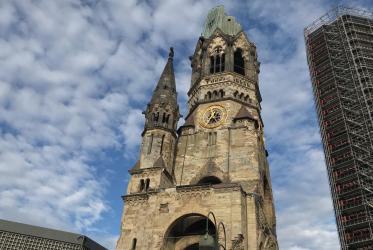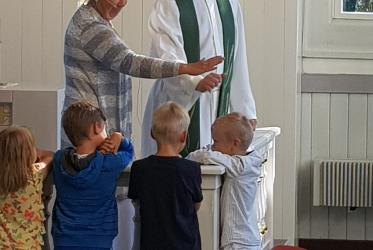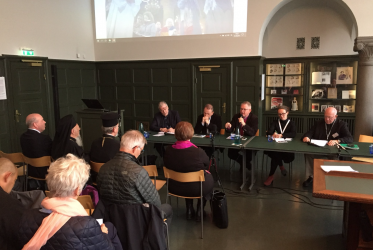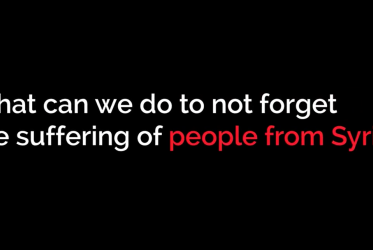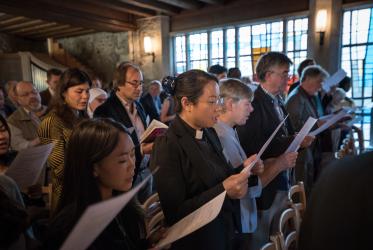Displaying 1 - 20 of 29
Thursdays in Black: sharing support, transforming lives
21 February 2019
Blessed school starts for kids in Finland
24 September 2018
“Love will find a way”
23 August 2018
WCC conference considers “Just Peace with Earth”
16 October 2017
New Executive Committee members elected in Trondheim
28 June 2016
Water in a sustainable future
20 June 2016
Like pilgrims to the Ecumenical Centre, Geneva
07 April 2016
Symposium focuses on religion, violence, extremism
04 February 2016
WCC/UN conference calls for coordinated action on refugee crisis
20 January 2016

